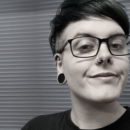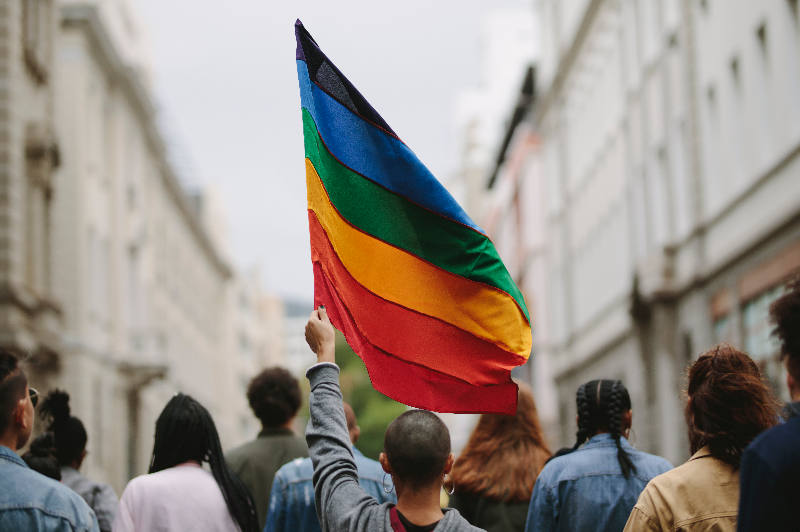Gender and sexuality diverse (LGBTQ+) people experience disproportionately high levels of sexual violence, but we still know very little about their experiences of sexual violence and seeking support in Australia.
Nearly 25% of people we surveyed had experienced sexual violence in the past year, with this figure rising to 34% for participants aged 18-25 years.
Our new research is one of the most comprehensive Australian studies on this to date. We surveyed 330 NSW-based LGBTQ+ survivors of sexual violence.
We found most participants experienced sexual violence at multiple points across their lives. And participants often reported negative experiences when trying to access support services.
Our findings also provide insights into what helped survivors on their journey to recovery, and how we can better support LGBTQ+ survivors.
Experiences of sexual violence
Nearly 25% of people we surveyed had experienced sexual violence in the past year, with this figure rising to 34% for participants aged 18-25 years.
Common forms of sexual violence the participants experienced included: non-consensual sexual touching (88%); sexual harassment (80%); someone continuing to have sex with them when they didn’t want to (80%); and someone having sex with them when they felt they couldn’t say no (82%).
Participants also experienced forms of sexual violence relating to their LGBTQ+ identity, such as being insulted, ridiculed or shamed about their body and gender expression (42%).
Participants told us:
- sexual violence most commonly occurred in a private residence (71%)
- most knew their perpetrator, and 86% of people said their perpetrator was a cisgender man. Contrary to myths promulgated by anti-trans lobbyists, our participants reported that trans women, trans men and non-binary people were least likely to have been perpetrators of sexual violence
- for participants who knew their perpetrator, 51% said they were part of LGBTQ+ communities, while 49% were not
- when asked about their perpetrator’s motivation, participants identified sexism (30%), homophobia (16%), biphobia (7%) and transphobia (5%) as driving factors.
Nearly 85% said their experiences impacted their mental health, and contributed to thoughts about self-harming (52%) and suicide (43%). For younger participants, thoughts about self-harm and suicide rose to 73%.
More than half of participants said experiencing sexual violence directly contributed to them self-harming or attempting suicide.
Survivors must be heard and believed
Telling someone about an experience of sexual assault is a vital step on the pathway to support and healing. Most participants (78%) did disclose their experiences to someone, typically a friend (66%), mental health provider (32%), partner (24%) or family member (23%).
Friends that I told were supportive and listened to my experiences. They never expressed any doubt that “it didn’t count as assault”, and had nuanced understandings of the factors of age, gender and power at play.”
Survey participant
Helpful responses ensured the survivor felt heard, believed, and free from judgement: “My dad was the most helpful. He just listened, and he gave me space and time, didn’t ask for details. Just let me tell him what I was ready to tell.”
Another participant said: “Friends that I told were supportive and listened to my experiences. They never expressed any doubt that “it didn’t count as assault”, and had nuanced understandings of the factors of age, gender and power at play.”
Helpful responses also included helping survivors to access support, and ensuring survivors had control over what happened next.
Yet, many participants experienced unhelpful or harmful responses when they disclosed. This included:
- being dismissive or invalidating someone’s experience
- minimising the impact of the event(s)
- blaming the survivor for what happened
- not believing the survivor’s experience.
One participant said: “I got a few “guys are assholes” responses. Just a throwaway comment, no validation or support. Or I was told that I was too young, and I should’ve known better.”
Inappropriate responses made the survivor feel unsupported or misunderstood, and this contributed to self-doubt and self-blame. This can create barriers to seeking further help, such as survivors feeling like there would be no point to disclosing to other people.
‘The police were dismissive’
The police were dismissive, rude, and minimising of what happened.”
Survey participant
Participants told us that not all support services are knowledgeable about LGBTQ+ relationships and cultures. Some said they had to educate practitioners on LGBTQ+ relationship dynamics when they were seeking support.
Very few people reported their experience to police, and there’s a well-documented history of criminalisation and violence by police against LGBTQ+ people.
Of the 15% of participants who did report to police, most described negative or “mixed” experiences at best: “The police were dismissive, rude, and minimising of what happened.” Another said: “It was horrible… honestly the reporting process was more traumatising than the assault itself.”
The police officer, he made me feel safe and quietly reassured me and it felt like I wasn’t judged.”
Survey participant
However, some participants did discuss positive experiences: “The police officer, he made me feel safe and quietly reassured me and it felt like I wasn’t judged.”
Nevertheless, current service provision didn’t adequately address the needs and experiences of LGBTQ+ people, and was in some cases actively retraumatising.
What helped survivors?
LGBTQ+ survivors identified a number of support methods, resources and strategies that services can learn from and implement.
These included services:
- adopting a holistic, trauma-informed approach to support. This approach focuses on survivors’ strengths, and aims to create safe and empowering environments that avoid retraumatising survivors
- training and educating staff on LGBTQ+ relationships and dynamics of sexual violence
- hiring LGBTQ+ people
- centring the voices and experiences of LGBTQ+ survivors.
Ongoing psychological assistance and medical support were helpful for some people. Others found hope in connecting with family, spending time in nature, and hobbies. Participants used physical exercise to reconnect with their body, and recommended reading about trauma to reduce feelings of disempowerment.
Support services need to create an inclusive and affirming environment that reflects the diverse needs of LGBTQ+ communities.
Our findings indicate services need to facilitate holistic and creative responses for survivors that may differ from current “talk therapy” practices.
“I saw a trauma-informed psychologist who worked with me for years afterwards to help me understand that it was not my fault and I shouldn’t carry the shame of what happened.”
Support services need to create an inclusive and affirming environment that reflects the diverse needs of LGBTQ+ communities. This might include services tailored towards these communities.
For example, gendered programs such as “women’s groups” can be important sources of peer support for cisgender heterosexual women survivors. But they may leave women from LGBTQ+ communities, cis and trans men, and non-binary people without access to peer support programs.
There’s an urgent need for these insights to be taken up in policy and practice so we can appropriately support all survivors on their pathways to healing.
About the authors
 Dr Bianca Fileborn is a Lecturer in Criminology, at the School of Social & Political Sciences, University of Melbourne. She is currently an ARC DECRA Fellow. Dr Fileborn’s research is concerned with examining assemblages of space, culture, identity and violence and safety. She has also been involved in numerous projects on sexuality and ageing. Her current research is concerned with justice responses to street harassment, sexual violence at Australian music festivals, and LGBTIQ+ young people and violence.
Dr Bianca Fileborn is a Lecturer in Criminology, at the School of Social & Political Sciences, University of Melbourne. She is currently an ARC DECRA Fellow. Dr Fileborn’s research is concerned with examining assemblages of space, culture, identity and violence and safety. She has also been involved in numerous projects on sexuality and ageing. Her current research is concerned with justice responses to street harassment, sexual violence at Australian music festivals, and LGBTIQ+ young people and violence.
 Dr Angela Dwyer is an Associate Professor in Police Studies and Emergency Management at the School of Social Sciences and Deputy Director of the Tasmanian Institute of Law Enforcement Studies (TILES). Her research on how sexuality, gender, and sex diversity influences policing contributed to founding the niche discipline area of queer criminology, and she is founding co-chair of the Division of Queer Criminology for the American Society of Criminology. She coordinates a Professional Honours program linked with the promotional pathways of Victorian and Tasmanian police officers and teaches serving police officers skills around leadership and critical incident management to create more critically thinking police leaders, especially around policing vulnerable communities.
Dr Angela Dwyer is an Associate Professor in Police Studies and Emergency Management at the School of Social Sciences and Deputy Director of the Tasmanian Institute of Law Enforcement Studies (TILES). Her research on how sexuality, gender, and sex diversity influences policing contributed to founding the niche discipline area of queer criminology, and she is founding co-chair of the Division of Queer Criminology for the American Society of Criminology. She coordinates a Professional Honours program linked with the promotional pathways of Victorian and Tasmanian police officers and teaches serving police officers skills around leadership and critical incident management to create more critically thinking police leaders, especially around policing vulnerable communities.
 Dr. Ash Barnes is a researcher for the department of Social Sciences at The University of Tasmania and at The University of Melbourne. Ash’s main work examines community perceptions of harm and pleasure, attitudes towards drugs and the impact of sexual and physical violence in music venues and cultures. They have worked in a range of projects which have direct, positive impacts to the community such as to law reform, LGBTIQA+ health services, sexual assault services, and alcohol and other drug policy.
Dr. Ash Barnes is a researcher for the department of Social Sciences at The University of Tasmania and at The University of Melbourne. Ash’s main work examines community perceptions of harm and pleasure, attitudes towards drugs and the impact of sexual and physical violence in music venues and cultures. They have worked in a range of projects which have direct, positive impacts to the community such as to law reform, LGBTIQA+ health services, sexual assault services, and alcohol and other drug policy.
 Over the last 20 years, Professor Nicole L. Asquith has worked as a practitioner and academic in the two areas of interpersonal violence and policing vulnerability. Her doctoral research looked at the forensic possibilities of hate speech in hate crime, and was later extended through the analysis of 100,000 hate crimes reported to the London Metropolitan Police Service. She currently works with Australian policing and criminal justice agencies to address the issues raised by violent victimisation, and responding to victims’, offenders’ and practitioners’ vulnerabilities. In addition to the role with TILES, she is the Co-Director of the Vulnerability, Resilience and Policing Research Consortium, Convenor of the Australian Hate Crime Network, and Co-Convenor of the Tasmanian Prejudice Related Violence Working Group.
Over the last 20 years, Professor Nicole L. Asquith has worked as a practitioner and academic in the two areas of interpersonal violence and policing vulnerability. Her doctoral research looked at the forensic possibilities of hate speech in hate crime, and was later extended through the analysis of 100,000 hate crimes reported to the London Metropolitan Police Service. She currently works with Australian policing and criminal justice agencies to address the issues raised by violent victimisation, and responding to victims’, offenders’ and practitioners’ vulnerabilities. In addition to the role with TILES, she is the Co-Director of the Vulnerability, Resilience and Policing Research Consortium, Convenor of the Australian Hate Crime Network, and Co-Convenor of the Tasmanian Prejudice Related Violence Working Group.
Eloise Layard, Jade Parker and Teddy Cook from ACON contributed towards this article.
This article first appeared on The Conversation, and is republished under a Creative Commons Licence; the original can be read here.
Picture © Jacob Lund / Shutterstock


